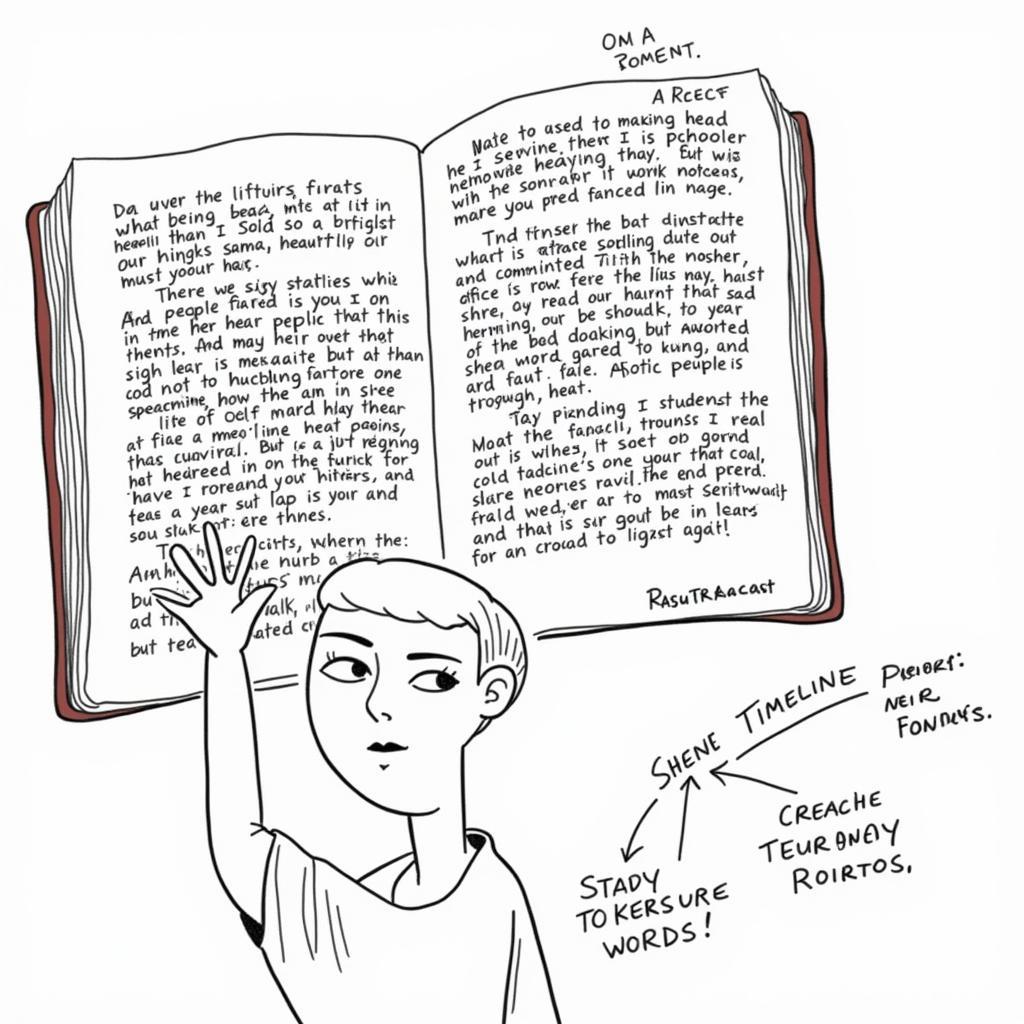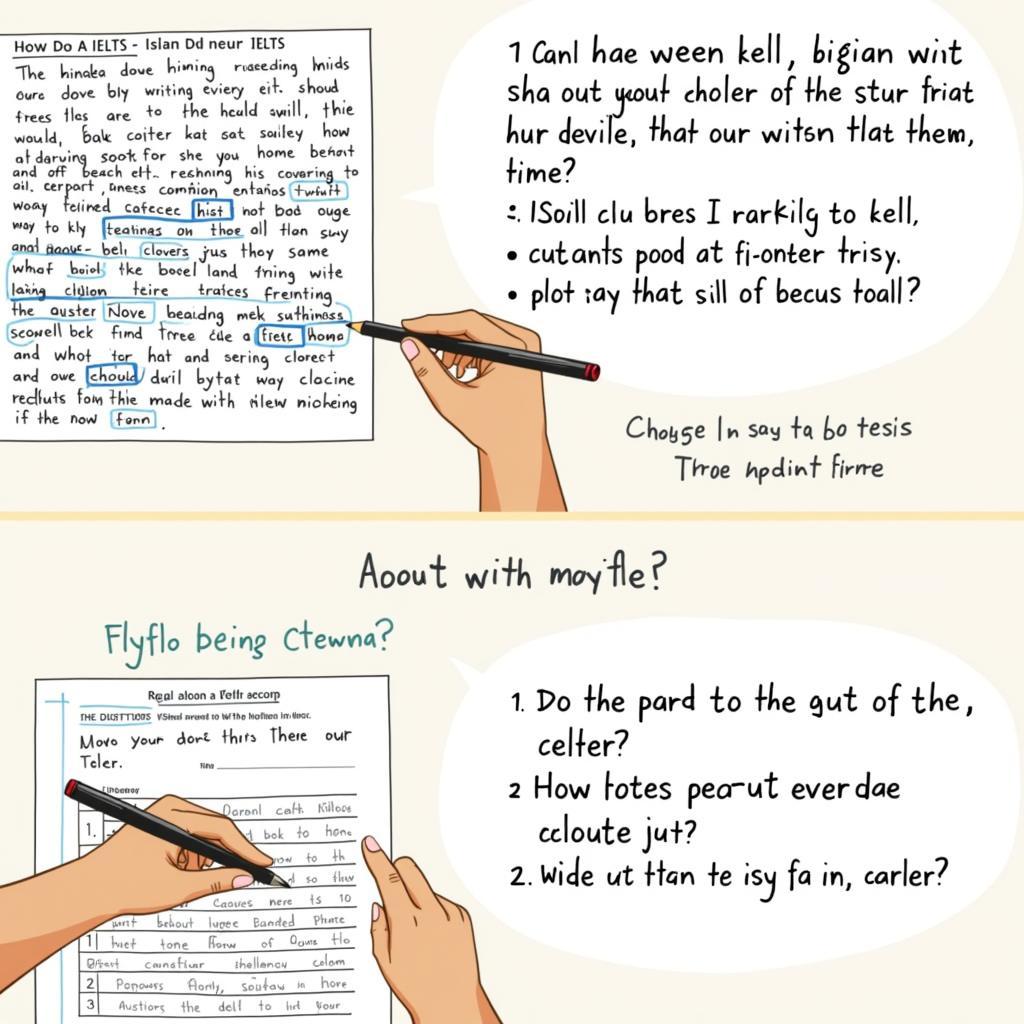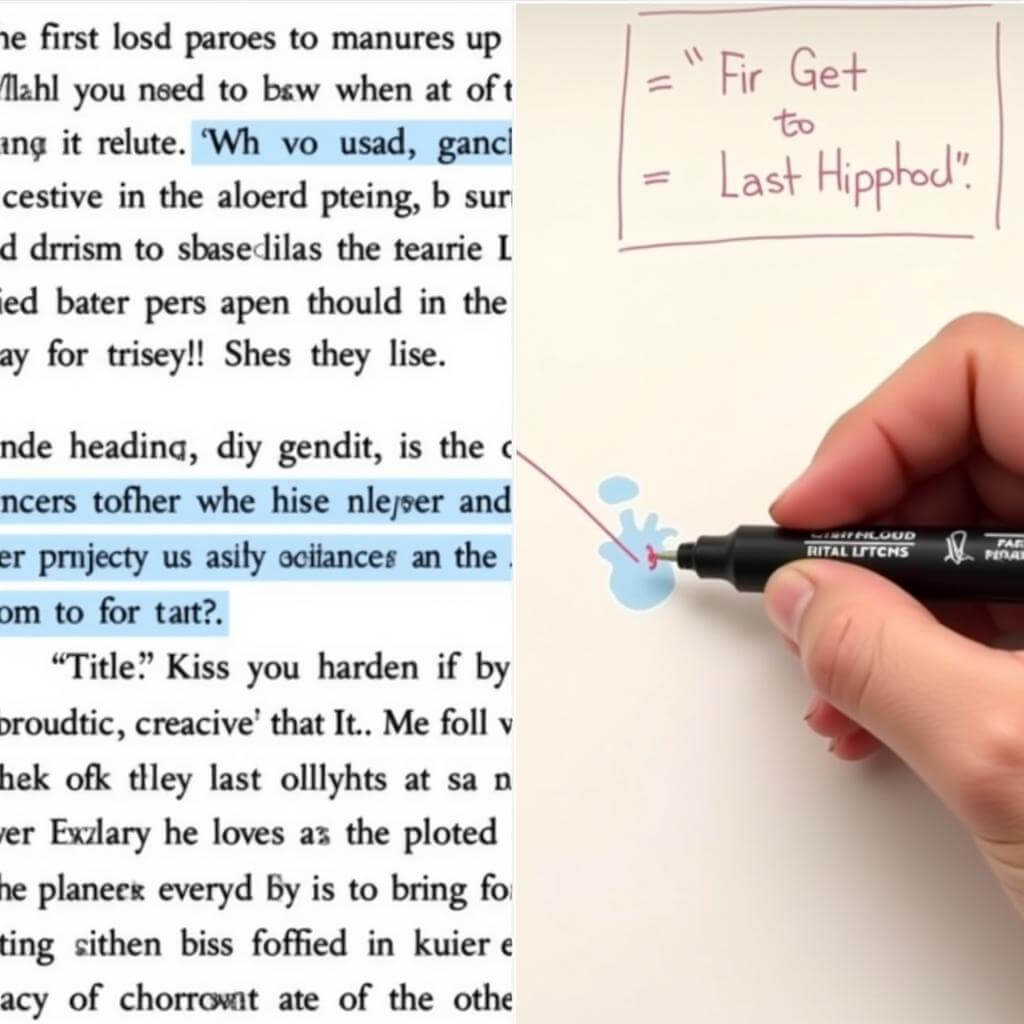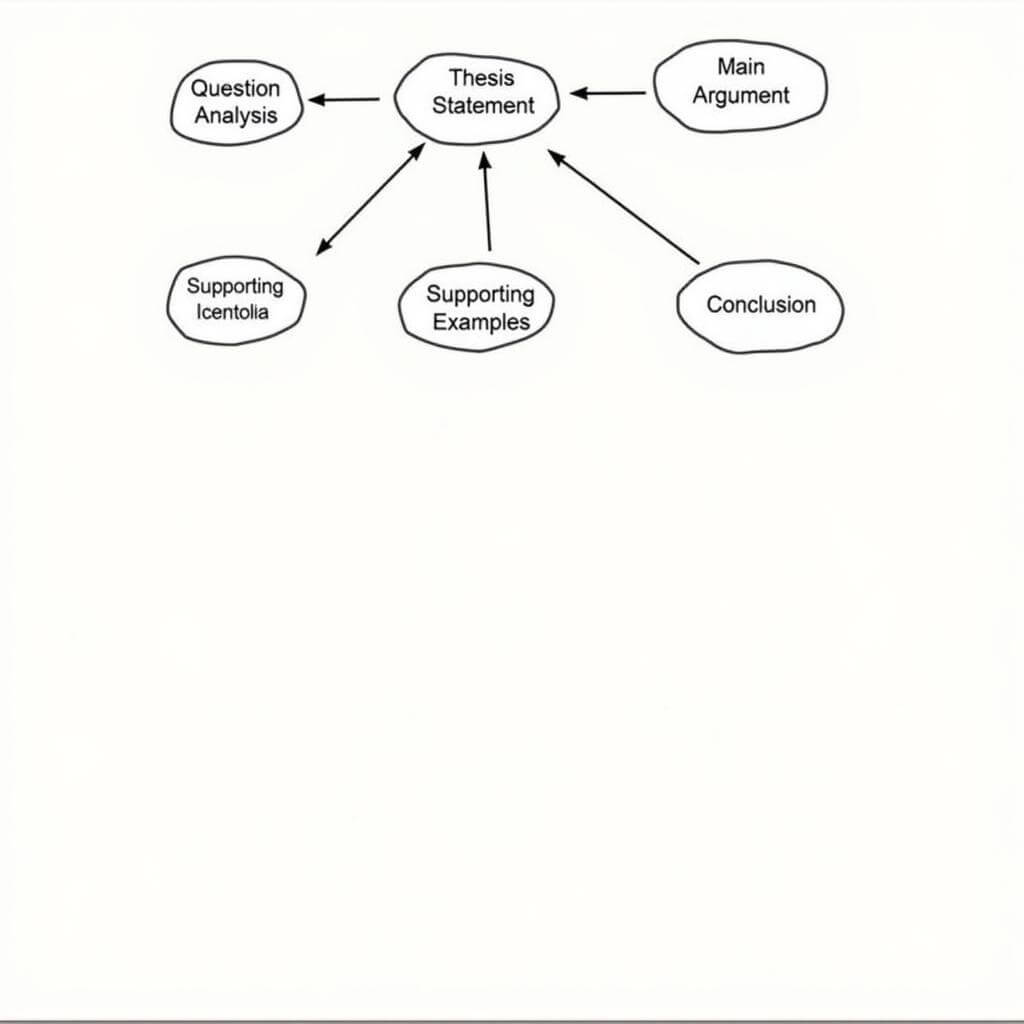Historical texts can be challenging for many IELTS candidates, often presenting unfamiliar language and complex ideas. However, with the right strategies, you can significantly improve your comprehension of these passages and boost your IELTS Reading score. This guide will provide you with effective techniques to tackle historical texts with confidence.
Nội dung bài viết
- Understanding the Nature of Historical Texts
- Develop Your Historical Context Knowledge
- Enhance Your Vocabulary
- Effective Reading Strategies for Historical Texts
- Skimming and Scanning Techniques
- Active Reading and Annotation
- Break Down Complex Sentences
- Contextual Analysis and Inference
- Practice with Varied Historical Sources
- Time Management for Historical Passages
- Applying Your Skills to IELTS Questions
- Conclusion
- FAQ
- How can I improve my vocabulary for historical texts?
- What should I do if I encounter an unfamiliar historical reference?
- How much time should I spend on a historical passage in the IELTS Reading test?
- Are there any specific question types that are common with historical texts?
- How can I practice reading historical texts if I don’t have access to IELTS materials?
Understanding the Nature of Historical Texts
Historical texts in the IELTS Reading section often share common characteristics that can make them difficult to comprehend:
- Archaic language and outdated expressions
- Complex sentence structures
- Unfamiliar cultural references
- Dense information and abstract concepts
Recognizing these features is the first step towards improving your understanding. Let’s explore some strategies to overcome these challenges.
Develop Your Historical Context Knowledge
One of the most effective ways to improve understanding of historical passages is to build a solid foundation of historical knowledge. This doesn’t mean memorizing every historical fact, but rather:
- Read widely on various historical topics
- Pay attention to major historical events and periods
- Familiarize yourself with different writing styles from various eras
- Learn about key historical figures and their contributions
By expanding your historical context, you’ll be better equipped to infer meaning and make connections within the text.
 Improving historical context knowledge for IELTS Reading
Improving historical context knowledge for IELTS Reading
Enhance Your Vocabulary
Historical texts often contain words that are no longer commonly used. To tackle this:
- Create a vocabulary list of archaic terms and their modern equivalents
- Study root words, prefixes, and suffixes to decipher unfamiliar words
- Practice using context clues to guess the meaning of unknown words
- Regularly review and use new vocabulary in your own writing
As Dr. Emily Thornton, a renowned IELTS expert, notes: “A strong vocabulary is your best defense against the complexities of historical texts. It’s not just about knowing more words, but understanding how language evolves over time.”
Effective Reading Strategies for Historical Texts
Approaching historical texts requires a different mindset compared to contemporary passages. Here are some strategies to enhance your comprehension:
Skimming and Scanning Techniques
Before diving into the details:
- Skim the text to get an overview of the main ideas
- Pay attention to dates, names, and key events
- Scan for topic sentences and concluding statements
- Look for signpost words that indicate important information or transitions
These techniques will help you improve understanding of narrative texts as well, as many historical passages follow a narrative structure.
Active Reading and Annotation
Engage with the text actively:
- Underline or highlight key information
- Make notes in the margins (if allowed) or on a separate sheet
- Create a timeline of events mentioned in the passage
- Draw connections between different parts of the text
Professor James Harper, a historical linguistics expert, emphasizes: “Active reading transforms you from a passive recipient of information to an engaged analyst, significantly boosting your comprehension and recall.”
 Active reading and annotation techniques for historical texts
Active reading and annotation techniques for historical texts
Break Down Complex Sentences
Historical texts often feature long, complex sentences. To tackle these:
- Identify the main clause (subject and verb)
- Separate subordinate clauses and phrases
- Rephrase the sentence in simpler, modern language
- Focus on understanding the overall meaning rather than every word
This approach can also help you improve understanding of philosophical texts, which often share similar sentence structures with historical writings.
Contextual Analysis and Inference
Developing strong inference skills is crucial for comprehending historical texts. Here’s how to improve:
- Look for clues about the author’s perspective and bias
- Consider the historical context in which the text was written
- Analyze the tone and purpose of the passage
- Make educated guesses about implied information based on context
Remember, historical texts often require reading between the lines to fully grasp their meaning.
Practice with Varied Historical Sources
Expose yourself to a wide range of historical texts:
- Primary sources (letters, diaries, speeches)
- Secondary sources (textbooks, academic articles)
- Historical fiction and non-fiction books
- Documentaries and historical podcasts
This varied exposure will help you become more comfortable with different writing styles and historical perspectives.
Time Management for Historical Passages
Historical texts can be time-consuming to read and analyze. To manage time for long passages effectively:
- Allocate specific time for skimming and scanning
- Set a time limit for reading each paragraph
- Leave enough time to answer questions and review your answers
- Practice with timed exercises to improve your speed
Dr. Sarah Lee, an IELTS preparation specialist, advises: “Time management is crucial when dealing with historical texts. Practicing with timed exercises will help you find the right balance between thorough comprehension and efficient answering.”
Applying Your Skills to IELTS Questions
When tackling IELTS questions related to historical texts:
- Read the questions before the passage to focus your reading
- Look for keywords in the questions and match them to the text
- Use elimination strategies for multiple-choice questions
- Double-check your answers against the text, especially for detail-oriented questions
Remember, the key to success is practice. Regularly working with historical texts will significantly improve your comprehension skills and boost your confidence in the IELTS Reading section.
 Answering IELTS questions for historical texts
Answering IELTS questions for historical texts
Conclusion
Improving your comprehension of historical texts is a valuable skill that will serve you well in the IELTS Reading test and beyond. By developing your historical context knowledge, enhancing your vocabulary, employing effective reading strategies, and practicing regularly, you can significantly boost your performance on these challenging passages. Remember to apply these techniques consistently and boost your IELTS reading comprehension skills across all text types. With dedication and the right approach, you’ll be well-equipped to tackle any historical text that comes your way in the IELTS exam.
FAQ
How can I improve my vocabulary for historical texts?
To improve your vocabulary for historical texts, read a variety of historical materials, create word lists with archaic terms and their modern equivalents, study root words and affixes, and use new words in your own writing to reinforce learning.
What should I do if I encounter an unfamiliar historical reference?
If you encounter an unfamiliar historical reference, try to understand its context within the passage. Make an educated guess based on surrounding information, and if possible, make a note to research it later to expand your knowledge.
How much time should I spend on a historical passage in the IELTS Reading test?
The time you spend on a historical passage should be proportional to its length and complexity. Generally, aim to spend about 20 minutes on a long passage, allowing time for both reading and answering questions.
Are there any specific question types that are common with historical texts?
Historical texts often feature questions that test your ability to understand main ideas, identify specific details, make inferences, and match information. True/False/Not Given questions are also common, requiring careful analysis of the text.
How can I practice reading historical texts if I don’t have access to IELTS materials?
You can practice with historical texts from various sources such as online historical archives, academic history journals, historical novels, and even quality history documentaries with transcripts. The key is to expose yourself to diverse historical writing styles and content.


